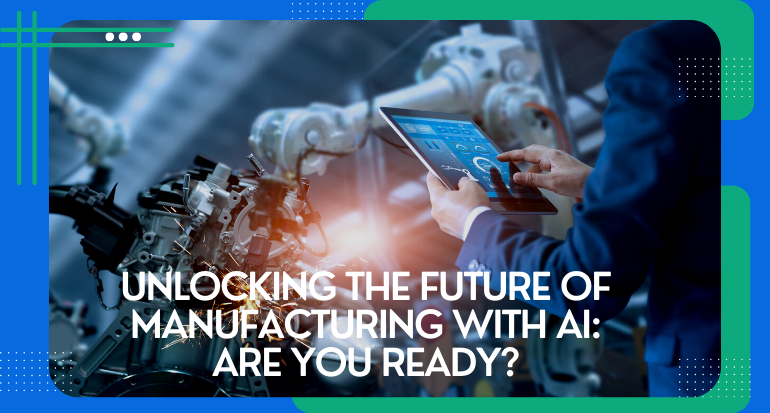Harnessing AI for Enhanced Productivity and Efficiency
In the wake of President Joe Biden’s Executive Order on Artificial Intelligence, Chris Netram of the National Association of Manufacturers underscored the profound impact of AI in the manufacturing sector. With its promise to revolutionize safety, training, predictive maintenance, and product development, AI is a tool that small to mid-sized manufacturing enterprises cannot afford to ignore.
His exact quote: “Artificial intelligence represents a tremendous opportunity for modern manufacturing. AI is already helping manufacturers improve safety and training and empower workers to be even more innovative. It is unlocking incredible opportunities for predictive maintenance and product development, and manufacturers are continuing to develop further applications for AI. Manufacturers look forward to working with the administration following today’s executive order to ensure that any AI standards adopted at the federal level are developed with strong industry participation, support innovation and R&D, remain scaled based on the guardrails necessary for a particular technology or application, protect companies from unnecessary liability and bolster U.S. competitiveness and leadership in AI. Manufacturers also support strong data privacy and cybersecurity protections as well as robust investments in workforce development and prioritizing workforce needs through reforms to our immigration system.”
Understanding the AI Landscape in Manufacturing
AI’s role in manufacturing extends from simple automation to complex problem-solving and predictive analytics. Alex Peters’ experience at KI’s Green Bay plant illustrates this evolution, with AI monitoring machine conditions for anomalies, thereby enhancing efficiency and safety.
Practical Applications of AI for Small to Mid-Sized Manufacturers
- Predictive Maintenance: AI algorithms can analyze data from equipment sensors to predict failures before they happen, reducing downtime and maintenance costs.
- Quality Control: AI can oversee production lines, identifying and correcting defects more efficiently than human supervisors.
- Supply Chain Optimization: Through AI, manufacturers can optimize inventory levels, predict supply chain disruptions, and enhance logistics planning.
- Energy Management: AI systems can monitor and adjust energy consumption in real time, leading to significant cost savings.
- Worker Training and Safety: By incorporating AI in training programs, manufacturers can create more effective, customized learning experiences and enhance workplace safety through predictive risk analysis.
Steps to Integrate AI into Your Manufacturing Operations
- Assess Your Needs: Identify areas in your operation where AI can have the most significant impact. This might be in reducing waste, improving product quality, or optimizing your supply chain.
- Start Small: Pilot AI in a single area of your operation. For example, implement a predictive maintenance program for a critical piece of equipment.
- Invest in Data Infrastructure: AI thrives on data. Ensure you have the right sensors and data collection tools in place.
- Build or Buy: Decide whether to develop AI solutions in-house or to partner with AI solution providers.
- Train Your Workforce: Prepare your workforce for AI integration by providing training and upskilling opportunities.
- Monitor and Scale: Regularly review the performance of AI applications and scale successful implementations across other areas of your operation.
Overcoming Challenges and Looking to the Future
While embracing AI, manufacturers must also consider the challenges. These include the need for substantial investments in technology and training, the evolving nature of AI ethics and regulations, and the potential for workforce displacement.
Moreover, aligning AI applications with the current workforce shortage can lead to a strategic advantage. Reassigning displaced workers to more creative and complex tasks can enhance productivity and innovation.
Final Thoughts
The adoption of AI in manufacturing is no longer a matter of choice but a necessity to remain competitive. Small to mid-sized manufacturers, in particular, stand to benefit significantly from the judicious application of AI technologies. By understanding and leveraging AI’s capabilities, these businesses can achieve unprecedented levels of efficiency, safety, and innovation, ultimately leading to enhanced competitiveness and success in a rapidly evolving global market.
How do you envision integrating AI into your manufacturing processes, and what challenges or opportunities do you anticipate for your business?
Anjela Mangrum, the founder of Mangrum Career Solutions, is a trusted authority in executive recruitment for the manufacturing industry! She’s dedicated to matching top-tier candidates with rewarding opportunities in the field. Connect with her on LinkedIn and join the MCS LinkedIn group for the latest in manufacturing recruitment news and trends. Let’s partner in your hiring success!


